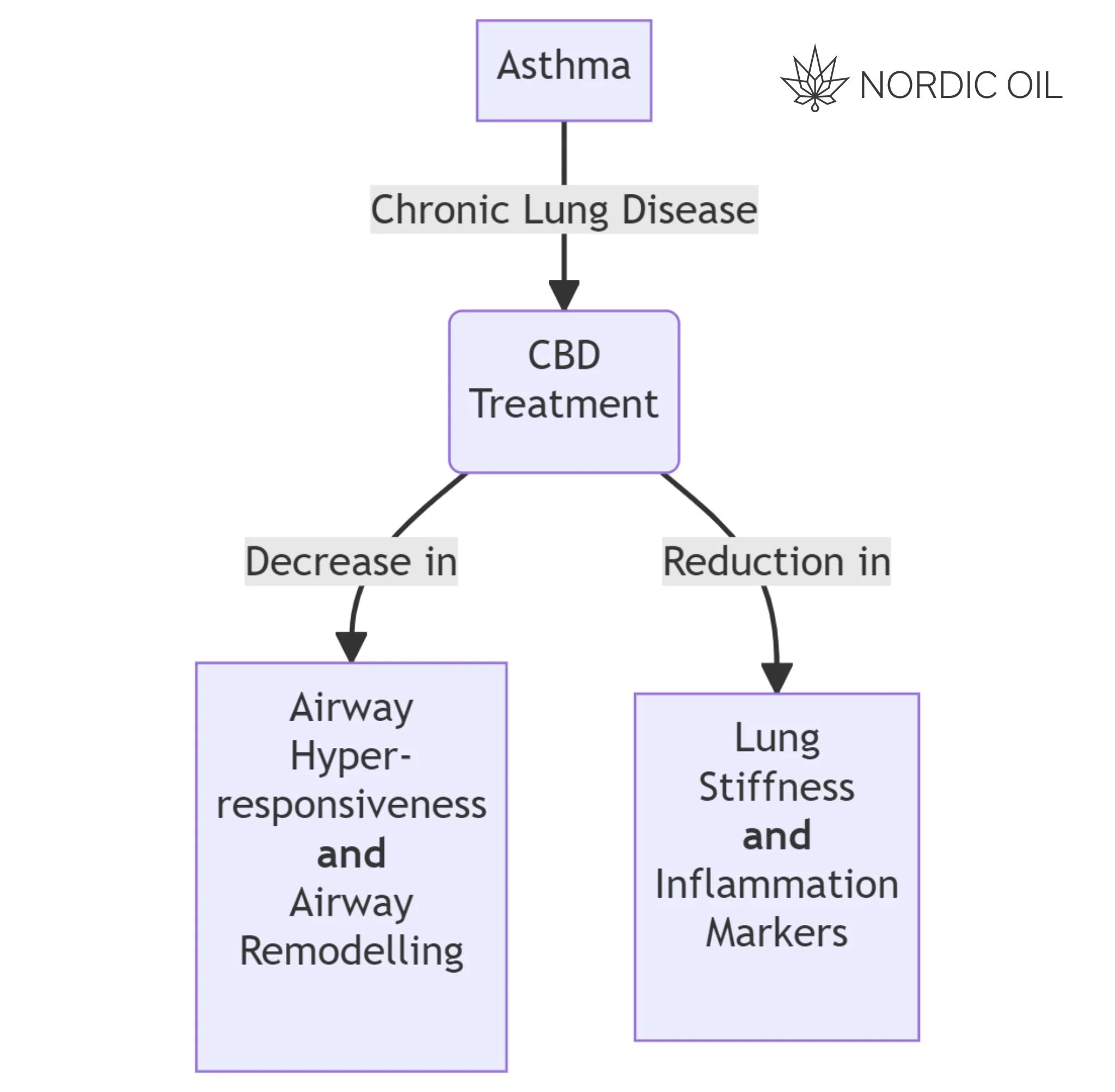Asthma, a chronic lung disease characterized by inflammation and airway hyperresponsiveness, affects millions of people worldwide. Current treatments can manage symptoms but cannot reverse airway remodelling, a structural change in the lungs associated with severe asthma. A recent study, however, suggests that cannabidiol (CBD), a compound found in cannabis, may have the potential to do just that.
About the Study
The study, titled "Cannabidiol reduces airway inflammation and fibrosis in experimental allergic asthma," was conducted by a team of researchers led by S.C. Abreu and M.A. Antunes. The study was an animal-based experiment conducted on Balb/c mice and was published in the European Journal of Pharmacology.
Main Findings
- CBD treatment, regardless of dosage, decreased airway hyperresponsiveness in mice.
- High-dose CBD treatment reduced static lung elastance, a measure of lung stiffness.
- CBD treatment led to decreases in collagen fibre content in both airway and alveolar septa, indicating a reduction in airway remodelling.
- CBD treatment also decreased the expression of markers associated with inflammation in the bronchoalveolar lavage fluid and lung homogenate.
Methodology
The researchers induced allergic asthma in the mice using ovalbumin, a protein found in egg white. The mice were then treated with either a low or high dose of CBD. The researchers measured respiratory mechanics, collagen fibre content in airway and alveolar septa, cytokine levels, and the expression of cannabinoid-1 and -2 (CB1 and CB2) receptors. The study lasted for a period of several weeks, allowing the researchers to observe the effects of CBD treatment over time.
Potential Implications
The findings of this study suggest that CBD could potentially be used as a treatment for asthma. By reducing airway hyperresponsiveness and remodelling, CBD could help to alleviate some of the most severe symptoms of the disease.
Limitations
While the results of this study are promising, it's important to note that the study was conducted on mice, not humans. Further research is needed to determine whether the same effects would be observed in human subjects.
Conclusion
This study provides promising evidence of the potential benefits of CBD for treating asthma. However, further research is needed to fully understand the mechanisms of action and to determine the most effective dosages and methods of administration. For more details, you can read the full study here.

